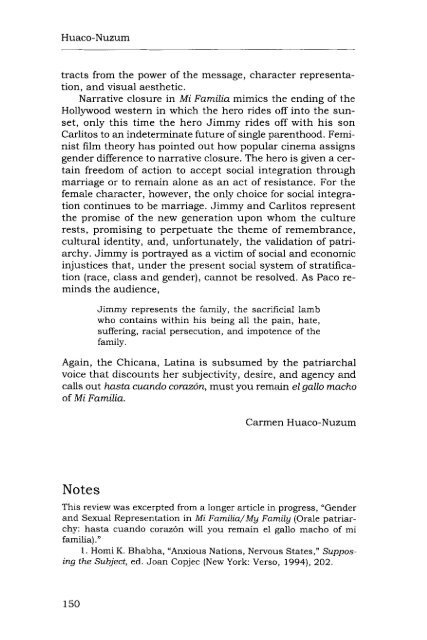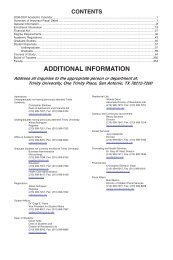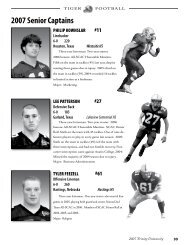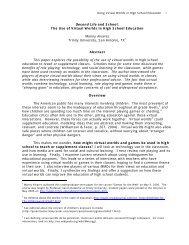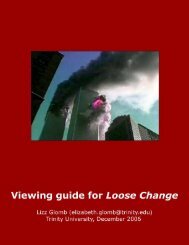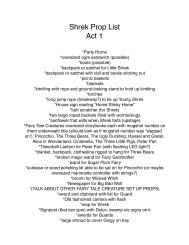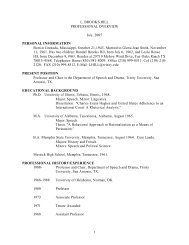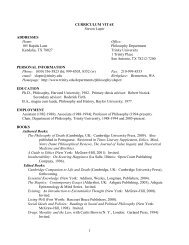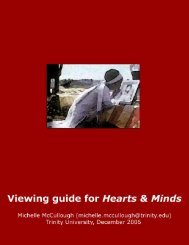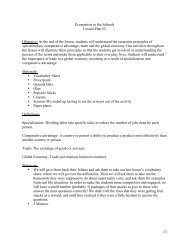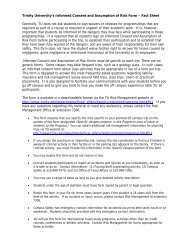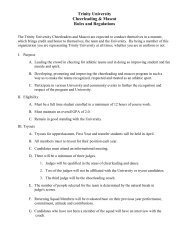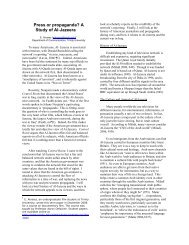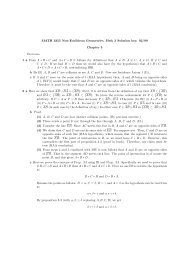Reviews - Trinity University
Reviews - Trinity University
Reviews - Trinity University
Create successful ePaper yourself
Turn your PDF publications into a flip-book with our unique Google optimized e-Paper software.
Huaco-Nuzum<br />
tracts from the power of the message, character representation,<br />
and visual aesthetic.<br />
Narrative closure in Mi Familia mimics the ending of the<br />
Hollywood western in which the hero rides off into the sunset,<br />
only this time the hero Jimmy rides off with his son<br />
Carlitos to an indeterminate future of single parenthood. Feminist<br />
film theory has pointed out how popular cinema assigns<br />
gender difference to narrative closure. The hero is given a certain<br />
freedom of action to accept social integration through<br />
marriage or to remain alone as an act of resistance. For the<br />
female character, however, the only choice for social integration<br />
continues to be marriage. Jimmy and Carlitos represent<br />
the promise of the new generation upon whom the culture<br />
rests, promising to perpetuate the theme of remembrance,<br />
cultural identity, and, unfortunately, the validation of patriarchy.<br />
Jimmy is portrayed as a victim of social and economic<br />
injustices that, under the present social system of stratification<br />
(race, class and gender), cannot be resolved. As Paco reminds<br />
the audience,<br />
Jimmy represents the family, the sacrificial lamb<br />
who contains within his being all the pain, hate,<br />
suffering, racial persecution, and impotence of the<br />
family.<br />
Again, the Chicana, Latina is subsumed by the patriarchal<br />
voice that discounts her subjectivity, desire, and agency and<br />
calls out hasta cuando corazon, must you remain el gallo macho<br />
of Mi Familia.<br />
Carmen Huaco-Nuzum<br />
Notes<br />
This review was excerpted from a longer article in progress, “Gender<br />
and Sexual Representation in Mi Farnilia/My Family (Orale patriarchy:<br />
hasta cuando corazon will you remain el gallo macho of mi<br />
familia) .”<br />
1. Homi K. Bhabha, “Anxious Nations, Nervous States,” Supposing<br />
the Subject, ed. Joan Copjec (New York: Verso, 1994), 202.<br />
150


